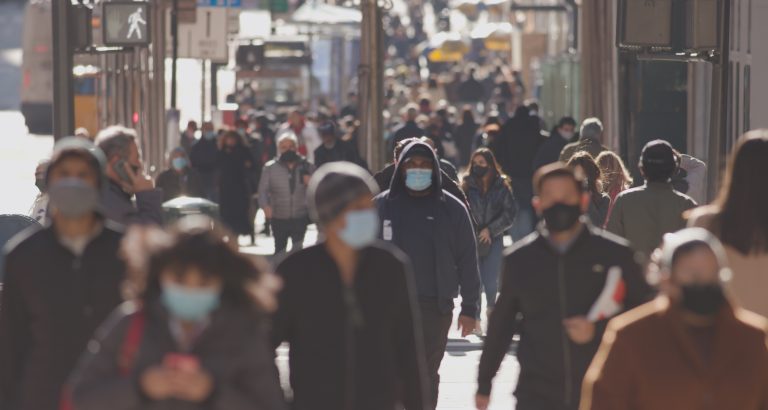From the outset of the Coronavirus pandemic, it became clear that older people are more vulnerable to the disease. The over-70s and anyone with underlying health conditions have been advised to isolate as much as possible.
While we are not medical experts, we strongly recommend following professional advice. Besides the health impacts, pensioners might also face financial, social, and economic challenges due to the pandemic and the efforts to control it.
How Your Pension Might Be Affected
If you currently receive a pension, you may be worried about the security of your income in light of economic volatility. Some pensions come with guarantees or safeguards, though these protections can vary.
Annuities
If you receive an annuity from an insurance company, it is guaranteed for life. Providers must hold sufficient financial reserves to cover the payments. Depending on your agreement, your annuity may include inflation adjustments, capital guarantees, or a spouse’s pension in case of your death.
However, annuity providers have faced difficulties in recent years, partly due to the rise of Pension Freedoms, which led to a decline in demand for this fixed but inflexible income option.
If your annuity provider fails, the Financial Services Compensation Scheme (FSCS) protects your pension. It will cover 100% of your annuity income with no upper limit. Therefore, if you rely on an annuity, your pension income is relatively secure.
Scheme Pensions
If you receive a pension from a former employer’s defined benefit scheme, your pension is also guaranteed for life. However, employer schemes can be more vulnerable to insolvency. Many of these schemes were established when life expectancy was lower and interest rates were higher, making it harder for them to grow funds and meet their obligations.
If the scheme is underfunded, the employer must cover the shortfall, which may be difficult, especially if the company operates in a sector hit hard by the pandemic. Some schemes have offered members the option to transfer out, though this doesn’t apply if you are already receiving a pension.
If your employer’s pension scheme becomes insolvent, the company has several options to stabilize it. If these efforts fail, the scheme can enter the Pension Protection Fund (PPF).
The PPF will cover your scheme pension in full if you’ve already reached your normal retirement age. If you haven’t reached retirement age, the PPF will cover up to 90% of your pension, with a cap depending on your age. For example, at age 60, the cap is £34,749.
For public sector pensions, the government backs your pension benefits. These schemes are usually secure, though current members may face cuts due to the financial strain caused by the pandemic. Retired members are less likely to be affected.
Drawdown
If you use a pension drawdown plan for your income, you might have seen fluctuations in your fund’s value. It may take a year or two to recover, but your financial adviser can help you manage risks. For example, they can:
- Ensure your fund aligns with your risk tolerance.
- Keep enough cash aside to cover short-term expenses, so you don’t need to sell investments during market downturns.
- Manage withdrawals to align with your cashflow needs. You might not be able to stop withdrawals entirely, but reducing the amount can help.
Most importantly, avoid withdrawing funds from the market at a low point unless absolutely necessary. If you sell during a downturn, you might miss the best recovery days, negatively impacting your long-term returns.
Your Savings and Investments
It is likely that your investments will also be experiencing some volatility at the moment. Again, the best option is to stick with the investment plan, ensure your portfolio is diversified, and don’t take money out unless necessary.
While not directly related to the Coronavirus, bank interest rates are at an historic low point, with the Bank of England Base Rate dipping to 0.1%. This will affect savings rates, meaning that your cash holdings may not keep their value when adjusted for inflation. It is worth shopping around for the best rates, even considering higher-interest fixed-term deposits if you don’t need to access the money for a while.
The last financial crisis reminded us that banks were not infallible. If your bank fails, the first £85,000 is protected by the FSCS. This applies per individual, so a joint account can hold up to £170,000 and still benefit. Temporary high balances of up to £1 million (for example from selling a property) are also covered.
It’s worth spreading your money amongst multiple banks if you can. Remember that the compensation applies to banking groups, not single brands. So if you hold money with HSBC and First Direct, or Halifax and Bank of Scotland, for example, this only benefits once from the compensation scheme.
For Isle of Man residents and use of banks please see further information on the Isle of Man Depositors’ Compensation Scheme (DCS) here: https://www.iomfsa.im/consumer-material/isle-of-man-depositors-compensation-scheme-dcs/
Embrace Technology
Pensioners may be in a more secure financial position than the working population, many of whom currently can’t work but still need to earn a living.
But if you are not working or home schooling, it can be difficult to deal with the boredom and loneliness. The new isolation measures mean that many of our hobbies and social activities are no longer available to us.
It is more important than ever to stay connected to the world, and technology allows us to do that. For example:
- Using FaceTime and Skype to keep in touch with friends and family.
- Taking online courses or learning new skills. For example, there are several recipe videos and art tutorials on YouTube. For more intellectual topics, various higher education institutions, from the Open University to Harvard, offer free online courses.
- Following online fitness videos.
- Reading eBooks on a Kindle or tablet now that the library is closed.
- Arranging online deliveries – priority slots are available from supermarkets if you fall into one of the vulnerable categories.
- Watching your chosen films and TV series on streaming services, rather than relying on broadcast TV.
Keeping in touch with your local community through Facebook pages. This can allow you to access help if you need it, or to help others if you can.
Please don’t hesitate to contact a member of the team if you would like to find out more about your retirement options.
The information provided on the pages, blogs and articles contained within this website are solely for information purposes only and do not constitute financial advice. Professional advice should always be sought from a financial adviser.



